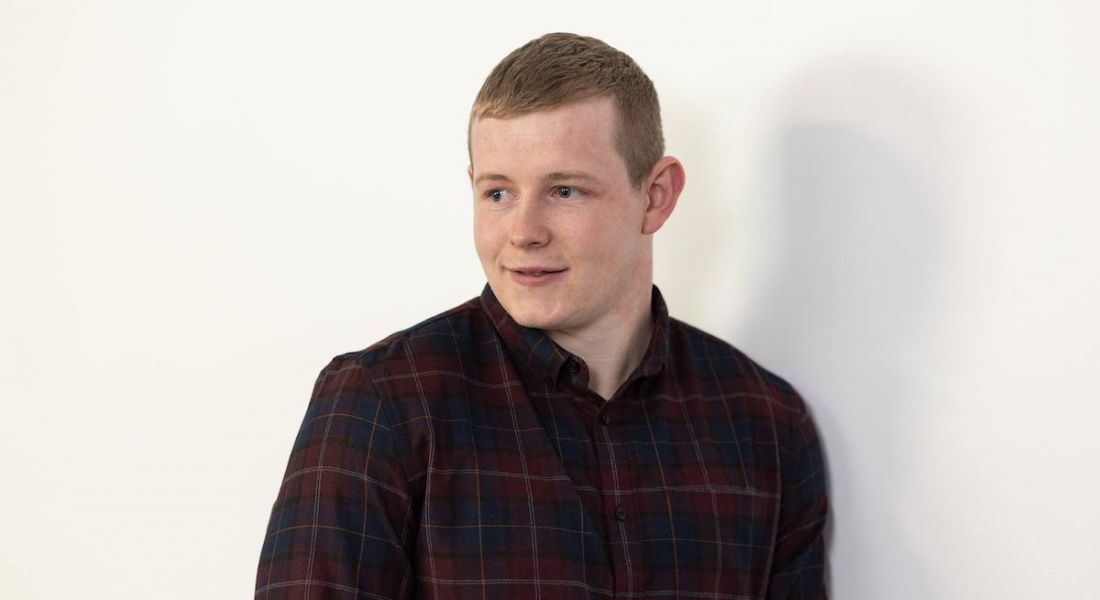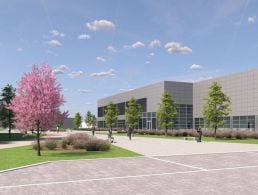BMS’s Ben McEntagart discusses what he learned across his three rotations during the company’s graduate programme.
Ben McEntagart always loved science in school and went on to study biotechnology at Dublin City University. During his degree, he completed a nine-month work placement at Bristol Myers Squibb (BMS), working in the manufacturing, science and technology (MS&T) downstream lab.
“This was my first introduction to the biopharma industry and I have to say it was a very positive one. There was a very inclusive and encouraging environment at BMS. They always wanted you to learn and tried to get the best out of you,” he said.
“When I saw that BMS were hiring for their graduate programme, I knew I’d like to go back to work there.”
‘The skills that I had gained in the previous role enabled me to integrate easily into the next’
– BEN MCENTAGART
What expectations did you have before you began the programme?
Having previously worked at BMS as an intern, I had a good idea of how BMS operated and the goals and culture they were trying to achieve.
I wanted the grad programme to give me new and different experiences in several areas over a short amount of time.
My time as an intern in BMS was solely focused on one team in the MS&T department. I expected the grad programme to be a little more cross-functional, having a faster pace, with more responsibility and exposure than my intern role.
After just finishing the grad programme, I definitely found that my expectations were met and the experiences I had have enabled me to become a competent and valued employee.
What duties and responsibilities were you given initially?
For my first rotation on the programme, I was a member of the MS&T upstream team. I worked in a number of labs in the MS&T department, so I had a good idea of how the lab functioned and the work they do.
This allowed me to get stuck into the work as soon as I was trained. I was often responsible for performing the daily sampling and monitoring of studies taking place in the lab.
As I completed more specific training and became more competent, I gained more experience in aseptic technique, passaging cells and media preparation. This allowed me to take on more responsibility.
Upon joining the team, I was also given my own project to manage and take accountability for. This was a great opportunity for me to experience every aspect of the role from study design and planning, to study execution, decision making and analysis.
Did the scope of your work change as the programme progressed?
Yes, the scope of my work definitely changed throughout the programme. While in the MS&T upstream lab, I was involved in small-scale studies focused on process improvement and characterisation.
For my next rotation, I moved to upstream manufacturing as a bio-process associate (BPA). For this role, my main focus was on manufacturing the process to current good manufacturing practice standards at large scale.
This role was a great contrast to my first rotation, having previously seen the process at small scale. It was very rewarding to take what I had learned in my previous rotation and apply it to my new role. Working as a BPA, I also learned to use key systems such as DeltaV and SAP.
For my final rotation of the programme, I moved to the manufacturing projects team. This role was focused on new product introduction and ensuring manufacturing was ready to introduce new molecules to the manufacturing floor.
My work often involved creating and updating manufacturing batch records and standard operating procedures (SOPs), implementing change controls, as well as delivering training to the shift teams.
Across the three rotations, I believe I got a great insight into the different aspects of manufacturing biologics, from small-scale lab characterisation to ensuring manufacturing is ready to produce the product, to finally manufacturing the product at scale.
Can you describe a typical day in your role?
Having finished the grad programme towards the end of last year, I’m currently a member of the manufacturing projects team. In this current role, I’m responsible for the sourcing of single-use consumables from alternate vendors.
Due to the Covid-19 pandemic, supply chains have been severely impacted with delays to deliveries of consumables needed for manufacturing. Therefore, to ensure we can continue to manufacture innovative medicines, a cross-functional team was set up to source and manage the dual sourcing of these consumables.
My function is to assess the impact of introducing an alternate consumable to manufacturing. My daily role includes reviewing technical drawings of alternate consumables to ensure they are fit for use in manufacturing, completing risks assessments and updating any relevant manufacturing documentation, such as batch records and SOPs.
I’m also responsible for identifying any material mitigations on site, as well as communicating with the manufacturing shift teams on any potential changes they may see.
How do your responsibilities compare to more experienced employees’?
While on the grad programme, you’re treated the same as any other employee in terms of responsibilities and work assigned to you. As with any role, your level of responsibility increases over time as you become more competent and receive specific training.
With each rotation in the graduate programme, I found the skills that I had gained in the previous role enabled me to integrate easily into the next.
My knowledge grew with each rotation and coming out of the grad programme, I feel that the skillset I now have is unique and has allowed me to gain more responsibility in my current role.
The graduate programme has also given me the confidence to be able to ask more experienced employees for guidance if needed. BMS has a very open culture where everyone is always willing to answer any questions you may have.
Do you feel more prepared for working life after completing this programme?
Yes, I definitely think so. The knowledge and skills I gained during the programme are invaluable and will stand me in good stead as I move forward in my career.
The opportunity to experience three different departments at such an early stage in my career is brilliant. It’s really given me a focus on the type of role I’d like going forward.
Why should someone apply to the graduate programme at this company?
The graduate programme offered by BMS is an excellent opportunity for anyone looking to start their career in the biopharma industry.
It’s a great way to experience different departments you may have an interest in for the future or to further your knowledge and skills in a particular area.
With the freedom to pick your rotations, you are given the opportunity to tailor your own experience and develop skills and knowledge across a diverse range of roles. With so many different teams and roles available, I’m confident in saying that no two graduate experiences have been the same.
BMS is a fast-paced, inclusive and exciting place to work. There’s always something new to learn. Outside of work, there’s always a bit of craic with plenty of clubs and groups to get involved in.
10 things you need to know direct to your inbox every weekday. Sign up for the Daily Brief, Silicon Republic’s digest of essential sci-tech news.




